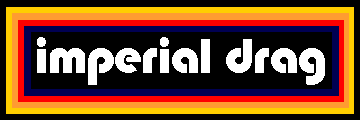
"Keyboard Jam"
Music Connection, May 13, 1996
by Pat Kramer [This was taken from an article that had separate interviews with five leading keyboardists. Roger was one of those interviewed.]
WHO WERE YOUR MUSICAL INFLUENCES?
"Boy, the list is so long. I'll just narrow it down to a few names. Let's see, Chick Corea, Bill Evans, Keith Emerson and Rick Wakeman."
ARE YOU SELF-TAUGHT OR FORMALLY TRAINED?
"I've had a tremendous amount of schooling since I was five. A lot of people accuse me of having too much education. I'm so used to playing classical and jazz, since I was five up through high school, that when I started getting into pop and rock stuff, I realized that there were a lot of great rock & roll songwriters who didn't have any education at all. And it was kind of like I had to learn to divorce myself of all the rules and break them in hopes of bettering myself as a musician, in terms of tapping into a lot of emotional things that certain schooling didn't necessarily emphasize.
"A lot of times, I just found being really schooled, I'd look at the keyboard and I'd look at it mathematically. I'd look at it from left to right and I'd ignore the fact that the most important thing was to pick up the juicy notes. When I started getting into songwriting seriously -- which was probably in my late teens -- I realized that some of the best songs I was writing, or some of the best ideas I had, came to me when I was just humming in the car or walking down the street. And I would try to pull it out of my head first before I even played a note. Whereas before, the mentality would be to sit down and come up with something that you know is complex sounding or intricate, formulaic.
"So once I started bettering my songwriting that way, I went back to the jazz and stuff I had grown up with in high school and found out that my whole melodic approach to soloing was much easier. I would not trade any of my schooling for anything, but the key thing is how to use it properly. I mean, it's just like anything else. You can have all this schooling, but unless you sit down and learn to apply it, transcribe your favorite records and learn how your favorite composers applied it, it's not going to mean anything."
WHEN AND HOW DO YOU PRACTICE?
"I don't have a daily routine like I used to. My schedule just won't allow it. I'm not usually in front of a keyboard on a daily basis like I was growing up in my home where there was always a piano. And I don't have a studio. But what I find is that when there is something I need to drill, or there's a solo I want to build up, once when I try to cut to the chase and ask myself, what are going to be the most effective notes, what scales are going to give me the quickest harmonic gratification?
"I try to get right down to it, and I really put a lot of weight into what I read in a Wynton Marsalis interview a long time ago. He said he only practiced two hours a day but it was a really, really focused practice. He just goes to the essence of what he felt he was lacking in and focused in on that, and that's what I find myself doing."
FAVORITE EQUIPMENT
"Fortunately, in the past three years I've had enough money to find used gear that I could never afford as a kid. Just within the past year alone, my Hammond B3 technique, I discovered that I actually had the potential to play the instrument, whereas five years ago, I wouldn't have been able to do anything on it, and now it's very natural for me to sit down on that thing. I love the Hammond B3. I love, love, love the clavinet. Again,. it's an instrument that I started playing seriously in the past two years. Just because it's so expressive and I can get really, really percussive on it. And being that my second instrument is drums -- I actually was fairly competent on the instrument at one point -- the percussive approach comes in real handy because I can get real rhythmic on it."
THE FUTURE OF PIANO
"I see it as just being another sound source, as a keyboardist might play a celeste or a harpsichord. It's going to be whatever the song calls for. Obviously, it will always have its place in jazz or classical, juts because the dynamic range on those instruments on something that's acoustic-oriented, like jazz, you just can't beat it. That's just my opinion.
"You have so much expressive capability at your fingertips. I mean, as far as soundtracks or pop music. I don't think it's going t get any bigger and I don't think it's going to get any less. As music evolves, people come up with new combinations and things like that. You know, synthesizers were really big for a while, then they faded out for a while. Now they're kind of having a resurgence. It's just trends. The piano will always be around. It's not going anywhere."
WHAT ADVICE DO YOU HAVE FOR FLEDGLING ARTISTS?
"Well, if people are trying to get into a pop/rock thing, the advice that I've always given people, because this is what's worked from personal experience, is don't waste your time beating yourself up in clubs trying to get a local following. Put as much time and money into making a quality demo CD and spend the time finding out who are the key music attorneys and management firms to get your music heard by."
